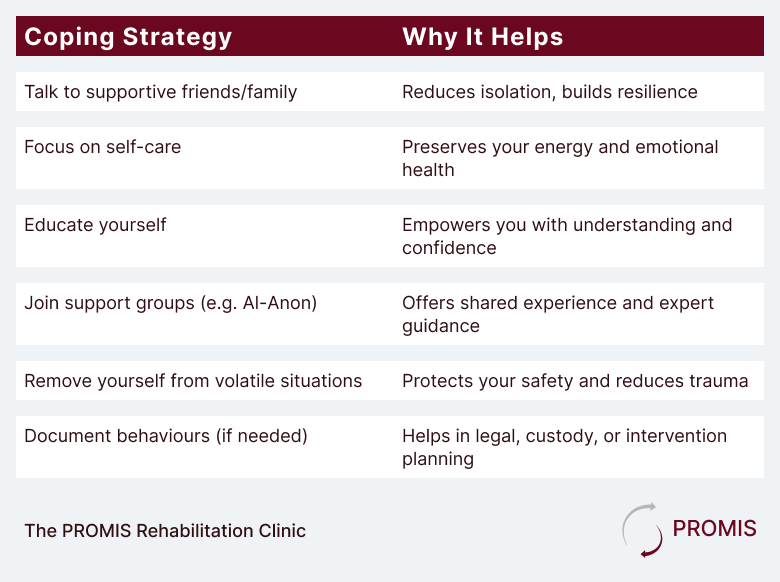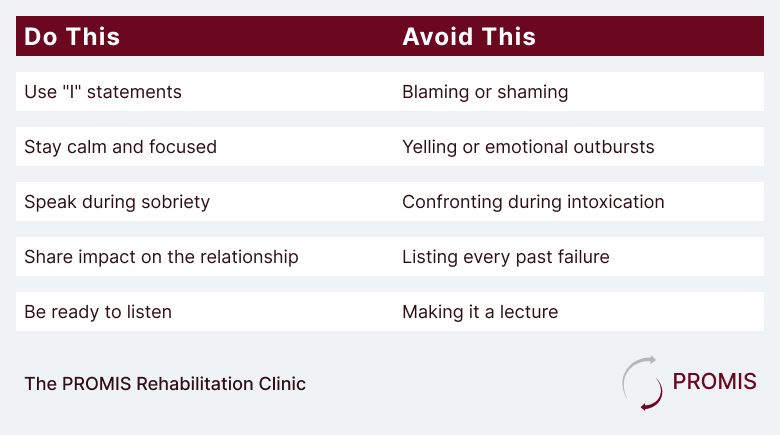Living With an Alcoholic Partner: How to Cope, Set Boundaries & Get Help
Living with someone who has an alcohol addiction takes an enormous emotional toll. Alcoholism can damage relationships, create chaos, and expose families to abuse, financial strain, or emotional trauma.
Trying to help someone stop drinking is often an uphill battle. Even as life becomes unmanageable, many partners continue to offer support, often at the expense of their own wellbeing.
What happens behind closed doors can be harrowing. This guide exposes the hidden truths, offers practical coping strategies, and helps you know when to seek professional support.
Understanding an Alcoholic Partner: Why They Drink and Deny It
Alcohol addiction rarely starts as a conscious choice. Many people drink to cope with anxiety, stress, or trauma. Alcohol may initially bring relaxation but over time, it impairs the brain and worsens emotional regulation.
Shame, fear of withdrawal, and denial keep many alcoholics trapped. They often don’t realise the damage they’re causing, or they feel powerless to stop. Understanding that denial is a defence mechanism, not defiance, helps you respond with clarity, and less self-blame.
Addiction is not your fault. But you do have choices in how you respond. To better understand the emotional defence mechanisms at play, read our guide on signs of denial in alcoholism.
The Challenges of Living With an Alcoholic Spouse or Partner
Living with an alcoholic partner can feel like walking on eggshells. They may:
- Deny the problem
- Break promises repeatedly
- Show unpredictable or aggressive behaviour
- Create financial or emotional instability
You may believe love or patience will lead to change but addiction does not respond to reason or emotion alone. Professional intervention is often the only real turning point.
Why Families Stay Silent About Alcoholism
Unlike other illnesses, alcohol addiction still carries stigma. Friends and neighbours may dismiss it, and families often hide the truth out of shame or fear.
Many people, especially women with children, feel trapped by emotional or financial dependence. They might stay in harmful situations, hoping things will improve.
But silence rarely leads to change. Understanding the disease (and your limits) is key to protecting yourself and your loved ones.
What Not to Do When Living With an Alcoholic
Well-intentioned actions can sometimes make things worse. Avoid the following:
Don’t buy or provide alcohol
Don’t make excuses or cover for them
Don’t shield them from consequences
Don’t tolerate abusive behaviour
Don’t pour out their alcohol (sudden withdrawal can be dangerous)
Don’t make empty threats
Don’t blame yourself
Don’t try to detox them alone, seek medical support
How to Cope When Married to an Alcoholic
Your safety and mental health come first. These tips can help you manage day-to-day:

For deeper emotional strategies, explore our post on how living with an alcoholic affects you, which offers practical coping tools and self-care techniques.
Talking to an Alcoholic Partner: What to Say
If your partner is open to conversation, choose a calm, sober moment. Then:
- Stay composed — no shouting or blaming
- Use “I” statements to explain how you feel
- Focus on the impact of their drinking, not just the behaviour
- Offer encouragement, not ultimatums (unless you’re ready to follow through)
- Write down what you want to say beforehand
If needed, consider a structured alcohol intervention with professional guidance.

When They Refuse Help
Many alcoholics deny there’s a problem until a major crisis forces change. If they refuse support:
- Set firm, enforceable boundaries
- Refuse to enable or protect them from consequences
- Protect children or vulnerable family members
- Consider separation if the situation becomes unsafe
You can’t force recovery, but you can protect yourself. If your partner resists treatment, our post on helping an alcoholic who refuses treatment offers methods and emotional support tactics to guide you.
When You’ve Reached Your Limit
If your physical or mental health is suffering, or if there’s risk of violence, it’s time to seek help. You are not failing, you are protecting your future.
A professional intervention may be the best next step. PROMIS offers discreet, compassionate support to help families take action and protect themselves.
Get Help From PROMIS
PROMIS is a UK-based alcohol rehab centre with locations in London and Kent. We specialise in alcohol addiction, dual diagnosis, and family support. Our services include:
- Medically supervised detox
- Residential rehab
- Family interventions
- Trauma-informed therapy
- Ongoing aftercare and relapse prevention
We’ve helped thousands of families navigate the pain of addiction, and we’re here for you too.
Frequently Asked Questions
How can I help my alcoholic partner who is in denial?
Start with a calm, non-judgmental conversation. Share how their drinking affects you. Avoid accusations, and consider involving a professional.
Is it possible to live with a functioning alcoholic?
Yes, but it can still cause emotional strain and long-term damage. Functioning alcoholics often deny the extent of their problem.
What are signs my spouse might be an alcoholic?
Common signs include secretive drinking, mood swings, neglecting responsibilities, defensiveness, or drinking early in the day.
Should I leave my alcoholic partner?
Only you can decide, but if there’s violence, manipulation, or repeated harm, leaving may be the safest and healthiest choice.
Can I force my partner into alcohol rehab?
No, treatment is most effective when the person willingly engages. However, you can stage a professional intervention to encourage them to accept help.
Is denial a symptom of alcoholism?
Yes, denial is common among people with alcohol addiction. It’s a psychological defence that makes recognising the problem difficult without outside support.
